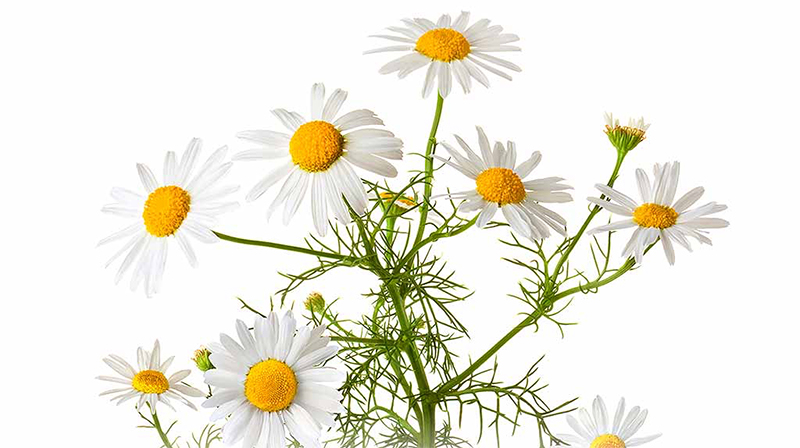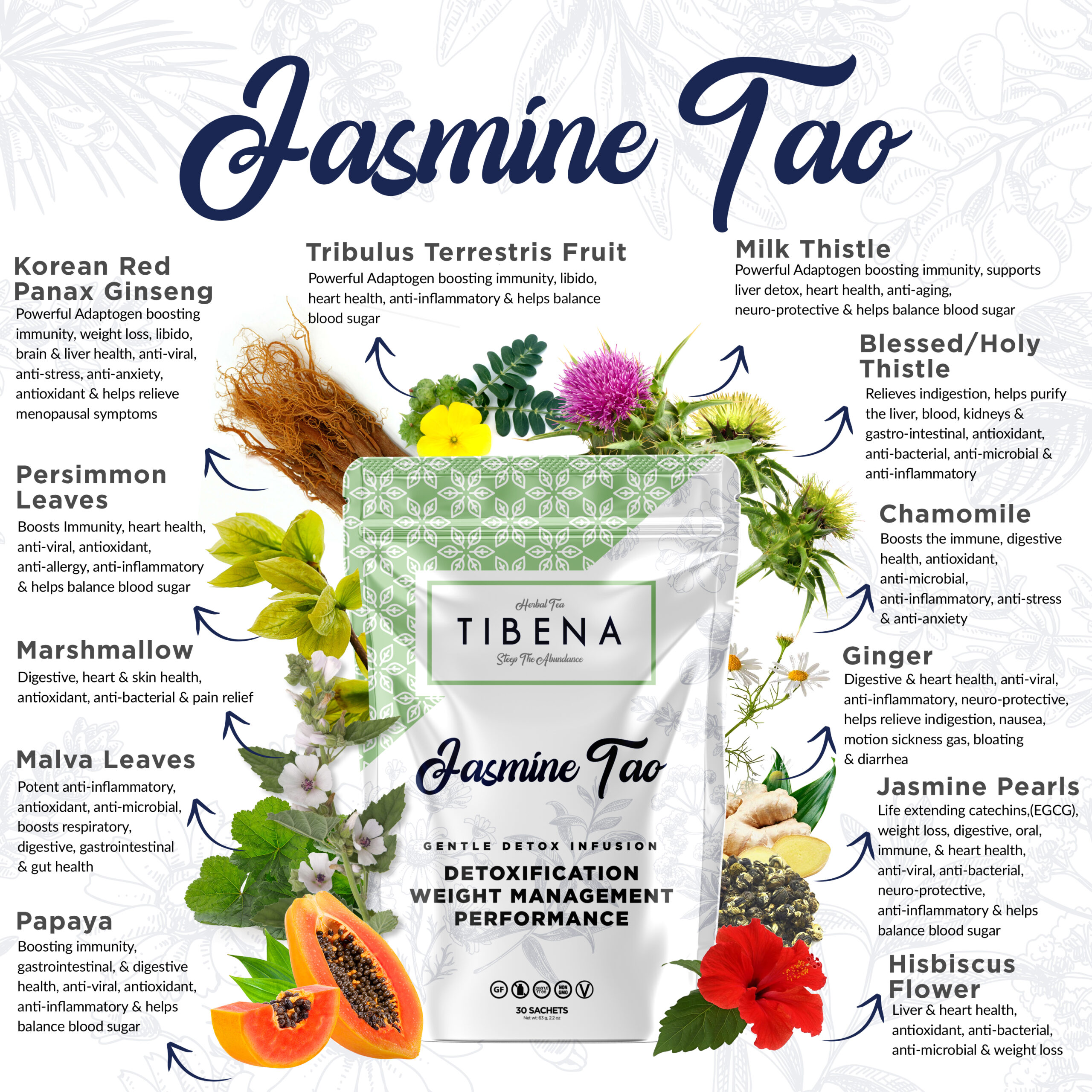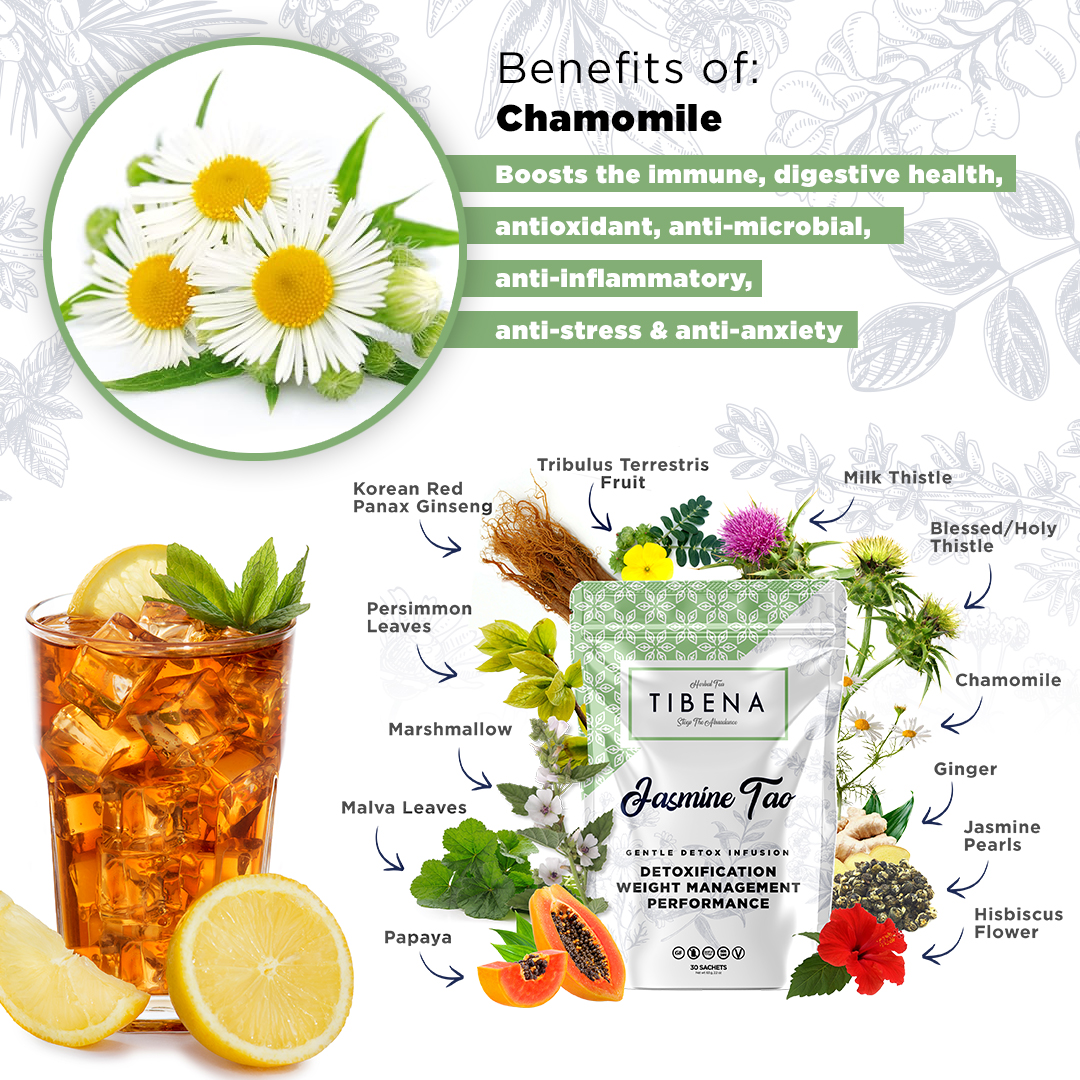
Studies have shown Potential Benefits:
Boosts the immune, antioxidant, anti-microbial, anti-inflammatory, anti-anxiety, anti-stress & supporting digestive health
Chamomile
is one of the most ancient medicinal herbs known to mankind. It is a member of Asteraceae/Compositae family. It has been consumed for centuries as a natural remedy for several health conditions.
The dried flowers of chamomile contain many terpenoids and flavonoids contributing to its medicinal properties. Chamomile preparations are commonly used for many human ailments such as hay fever, inflammation, muscle spasms, menstrual disorders, insomnia, ulcers, wounds, gastrointestinal disorders, rheumatic pain, and hemorrhoids. The most popular preparation is in the form of herbal tea. More than one million cups per day are consumed. It is indeed a therapeutic agent promoting human health. It is rich in powerful antioxidants that may have a variety of health benefits, including reducing the risk of cancer and heart disease.


https://www.ncbi.nlm.nih.gov/pmc/articles/PMC5074766/ – The findings of this study indicated that this plant is commonly used for its antioxidant, antimicrobial, anti-depression, anti-inflammatory, antidiarrheal and angiogenesis activity, anticarcinogenic, hepatoprotective, and antidiabetic effects. Besides, it is beneficial for knee osteoarthritis, ulcerative colitis, premenstrual syndrome, and gastrointestinal disorders. Antimicrobial activity (antiparasitic, antibacterial, antiviral properties) was reported.
https://www.ncbi.nlm.nih.gov/pmc/articles/PMC4177631/ – Chamomile to be helpful in preventing stomach ulcers, as it may reduce acidity in the stomach and inhibit the growth of bacteria that contribute to ulcer development
https://pubmed.ncbi.nlm.nih.gov/25842380/ – 537 people who drank chamomile tea 2–6 times per week were significantly less likely to develop thyroid cancer than those who did not drink chamomile tea
https://pubmed.ncbi.nlm.nih.gov/25194428/ – 64 diabetic people, who consumed chamomile tea daily with meals for eight weeks had significantly lower average blood sugar levels and had improvements in their total cholesterol, triglyceride and “bad” LDL cholesterol levels, over those who consumed water – may benefit blood sugar control and heart health.
https://pubmed.ncbi.nlm.nih.gov/26483209/– Effects of an intervention with drinking chamomile tea on sleep quality and depression: a randomized controlled trial. May lower stress levels and aid in sleep. Postpartum women who drank chamomile tea for two weeks reported better sleep quality compared to a group that did not drink chamomile tea. They also had fewer symptoms of depression, which is often linked with sleeping problems.
https://www.ncbi.nlm.nih.gov/pmc/articles/PMC2995283/– Boosts the immune. Chamomile has been used as an herbal medication since ancient times. Chamomile helps in improving cardiovascular conditions, stimulates the immune system and provides protection against cancer. Traditionally, it has been used to treat digestive ailments, including nausea and gas. Its anti-inflammatory properties may prevent damage to the cells of your pancreas, which occurs when your blood sugar levels are chronically elevated.
https://pubmed.ncbi.nlm.nih.gov/11505785/ – Antiulcerogenic effect of some gastro-intestinally acting plant extracts and their combination. May help alleviate gastrointestinal issues
https://www.ncbi.nlm.nih.gov/pmc/articles/PMC5650245/ – relief from anxiety
https://www.spandidos-publications.com/mmr/3/6/895 – supporting digestive health
https://www.ncbi.nlm.nih.gov/pmc/articles/PMC2995283/ – calming & soothing & relaxing
https://www.sciencedirect.com/science/article/abs/pii/S0944711316301891- anxiety
https://www.jstage.jst.go.jp/article/bpb/28/5/28_5_808/_article – sleep & relaxation
https://www.ncbi.nlm.nih.gov/pmc/articles/PMC5470311/ – sleep
https://www.ncbi.nlm.nih.gov/pmc/articles/PMC5074766/ – antioxidant & anti-depression
https://www.ncbi.nlm.nih.gov/pubmed/22894890 – anti-depressive
https://www.ncbi.nlm.nih.gov/pmc/articles/PMC3600416/ – anti-anxiety
